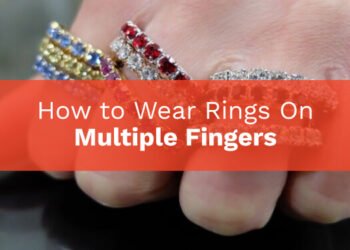There’s nothing like falling in love, especially for a teenager’s first crush or love. This first love is innocent and exciting. For a long, long time, young children have experienced crushes. It’s not an emerging phenomenon.
Feelings are very genuine and significant to teenagers and preteens. It is true love if they have a crush on someone. They are genuinely perplexed if someone else has a crush on them. Listen to what they have to say and help them define what they are feeling because this is the first time they have felt this kind of attraction or intensity of emotion. You can’t dismiss it as insignificant or incorrect.

But the teenager’s first “love or crush” experience is not the same as that of an adult.
It is often difficult to remember as adults how deep and complex the emotions involved are. You have to be patient and understanding as a parent to provide direction through their difficult times such as;
- Emotional issues
- Sexual issues
- Issues at school
- Problems with behavior
- Eating disorders
For young people, adults are the most important role models. You may be a good model for respectful partnerships and friendships by treating your spouse, friends, and family with care and respect. Talking about both men and women with respect will let your teen know that you believe there is equality.
Adolescence begins
There is no proper age to have a crush, as every child is different, and each family feels and treats children differently. But, here are some average data:
- From the age of 9-11, your youngster might start showing greater friendship interest.
- From 10 to 14 years, your child could be in mixed-sex groups for a more excellent time, resulting in romantic relationships.
- Romantic ties between 15 and 19 years can be a crucial element in social life. Friendships may grow more stable and more profound.
Many adolescents spend a lot of time contemplating and discussing relationships. Teenage relationships could last a couple of weeks or months during these times. It is also not unusual for children until their late adolescence to have less interest in romantic relationships. Some opt to concentrate on education, sport, and other interests more.
Teenager’s Crush
A teenager’s crush is usual. The excitement and freshness during a particular infatuation stage are pleasant and thrilling.
A new connection sometimes begins with attraction. You might question why your teenager feels shy, embarrassed, or get butterflies when they are around someone. Those weird and sudden emotions, especially involving somebody they know, are very odd, like a friend.
A couple’s bond builds when they feel secure enough to share their thoughts and feelings with anyone else. They can spend time together and get to know one another better. They have a close connection such as trust, respect, and honesty.
Some relationships do not last after this stage, but others develop in love.
The beginning of love sentiments is a romantic crush. They may have one or more crushes before children start to establish relationships. Please talk about your child’s imagination of a perfect or ideal person; this can tell you many appeals to your youngster.
Romantic crushes don’t last very long because thoughts of perfection often fall apart when your child better knows the others. The powerful sentiments of your child are real, but you must not make fun of crushes and treat crushes seriously.
What should you do about the first romantic relationship of your teenager?
Listen and talk to your teen. as communication is the key to many problems. Be somebody with whom they feel comfortable to talk about their Crush.
If your teen feels comfortable and is open, you may listen to what they want to say about their Crush. You can also add stories and pieces of your Crush. Not only does this make them feel less alone, but it also helps you to open your eyes because you know something similar is going on with your teen.
It is crucial as your teenager has genuine emotions and sensations. Let your adolescent talk about it; show interest and listen close and never undermine the feelings of laughter or embarrassment.
Best 6 ways to respond to teenager’s crush or relationships:
Understand Your Teenager’s First Crush or Romantic Bond
The family impacts the way your youngster views adolescent relationships. If your child is used to respectful interactions in general, they will apply it to love relationships.
Talking about relationships will be more comfortable for adolescents if you encourage them to talk about feelings (including sexual issues), friendships, and family ties.
When intimacy and effective communication characterize relationships, young people are happier with themselves. Young people appreciate the support, trust, and closeness in love connections. Also, in teens age, having a girlfriend or a boyfriend might also improve your confidence.
Allow The Dating Of Your Child
It’s also not the best moment to get engaged during the start of the First Crush. If you tell teenagers that they are too young to feel this way, you will split the young couple. A first crush is exciting and joyful, and it should be appreciated.
It might be uncomfortable and intimidating to a young teenager when unprepared and inexperienced for sudden feelings.
When you have an inkling hunch about what to expect and that the weird feeling is very normal, it’s always a smart idea to approach the subject.
Although we may think it adorable or even enthusiastic about this new stage in our teenage lives, it is very personal and should not share with the rest of the family without permission.
Observe The Situation And Warn For Any Misconduct
You have to discuss how to behave appropriately with your teen. Excessive reaction to crush, and although profound emotions may be understandable. But it should be made plain that making someone else feel uncomfortable is unacceptable.
Tinkering with someone else, phoning, or becoming upset will embarrass or annoy the object of their affection and must not be encouraged.
Strengthen your child’s healthy relationships from an early age. As a parent, learning about risk factors and observing signs of abuse is vital. It will help if you are willing to react accordingly to reduce your child’s long-term impacts.
Let it be an Experience of Learning
Most infatuations usually don’t lead to anything. Teens lose interest or break others’ hearts. If this is the latter, your kid will be sad, condemn it again, or make their sentiments clear; listen.
Even if you wish to protect the romantic illusions of your teenager, they should know the distinction between a crush and a connection. As noted, girls may become obsessed with the goal of their lives, and often they are very quickly harmed.
And boys are particularly unwilling to say how distressed they are. Thus, it sometimes helps keep up with their moods, and if they don’t want to talk about it at first, don’t force it. Instead, you can remind them that, if they want to talk, you are there.
You should make them aware that powerful emotions are natural, and it is all right to be sad. What they’re not going to want to hear is they’re going to get over it; we know it’s true, but it will not help if they’re hurting.
Connections Between Teenagers
An essential developmental milestone is romantic connections. They arrive with all the other adolescent changes, physical, social, and emotional. And it is related to the growing interest in body image and appearance, independence, and confidentiality of your youngster.
Romantic relationships can cause lots of emotional ups and downs for your child and, on occasion, the entire family. It may be difficult for you to accept the fact that your child has such sentiments. But, these sensations drive your youngster to a more profound ability to maintain, share and establish meaningful relationships.
Relationships In Early Teens
Young adolescents often hang out in groups together. They might meet somebody among their pals and then spend more time alone with them. It could be good to emphasize that people of different ages may seek different things from relationships.
In early adolescence, teens often want to explore physical intimacy and sexual emotions. You may not always be prepared, but you have an essential role to play in guiding and supporting your child through that vital stage of development.
Talking about it together will help you understand whether your child is ready if you want to go out alone with somebody special. It is a part of child development. Those chats could make your child feel more comfortable with you when they begin to get interested in others romantically. And these dialogues may also raise other essential subjects, such as kindness, friendliness, and respect for the limits of others.
Some other tips for teenage relationships:
Young teens could be polite to everyone while they speak. Yet, it still requires your backup, so it is crucial to maintain the communication path open.
- If you talk to your child about sex and young age relationships, your child may feel more comfortable as she gets into puberty.
- Talking of romantic and sexual connections for young people means talking about friendships or going to a party.
- You and your child may have to discuss behavior and ground rules and repercussions for violating these rules.
- You have to discuss whether it is OK for their boyfriend or girlfriend to stay over for the night.
- If your child is feeling insecure or threatened, you may also wish to agree on certain things.
Conclusion
First, you have to know how they see the other person, i.e., their love/ crush. Help them realize why they want to be together. Find answers to questions like “Is it because your friends have got a girlfriend or boyfriend?”, “Does your child believe this is the only way out to have fun?”, Or “Will your youngster spend time knowing someone better?”
A teenager’s crush is a natural adolescent experience. These sentiments may be pretty intense for teenagers, and parents must recognize this when they experience them. You must handle the situation and provide suggestions based on how much they are into the other person.
Frequently Asked Questions
Can true love occur during adolescence?
While crushes happen at a young age for most people, it doesn’t apply to all. For the first time, 55% of people between 15 and 18 years old had fallen in love. It’s over half, but 45% of people still weren’t in love when they were in school.
Is it normal to get an adolescent crush?
Disintegration is a common element of adolescent life. Although you can get used to these new feelings, the person you are interested in can even begin to date.















